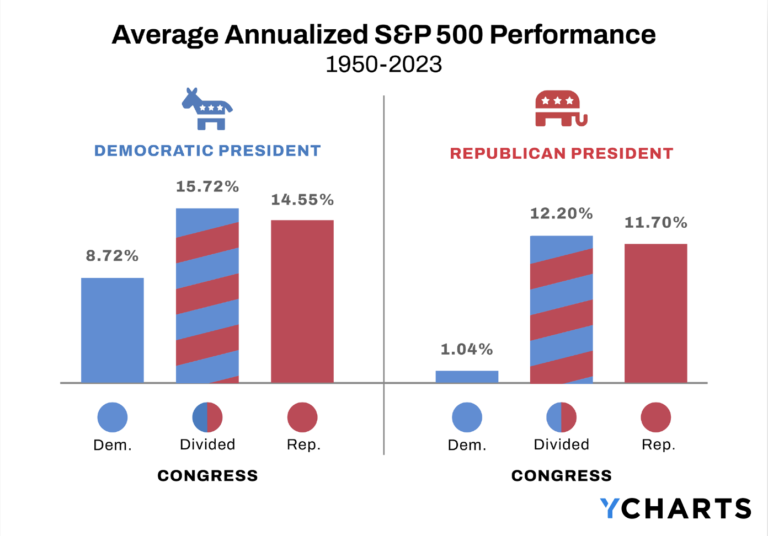The IRS defines a primary residence as a living space which you inhabit, but may rent out for up to two weeks per year without paying tax on the rental income. A rental home is primarily used as an income property, where personal use does not exceed the greater of 14 days or 10 percent of the days the home is rented annually. If you are planning on turning your primary residence into a rental property, first understand the tax and financial considerations and discuss with your financial advisor how real estate investments may fit into your overall goals. Finally, the tax code is very complex. It is advisable to work with a certified public accountant (CPA) on your personal situation.
Once you make the conversion, taxes on the property will be handled differently. The rental income will be taxable, but you may also be allowed to deduct expenses for maintaining the property, in addition to depreciation. Also, when the rental is eventually sold, the basis for calculating taxes on the gain (or loss) for the income property will be different than the calculations for a primary residence.
Tax deductions for landlords
The IRS allows landlords to claim deductions on their income taxes for depreciation and take other write-offs for rental properties. The deduction for depreciation can be used to offset the property’s rental income. Here is a breakdown of possible rental property deductions:
- Mortgage interest expense
- Property taxes
- Insurance
- Association fees (HOA dues)
- Utilities
- Repairs and maintenance
In most situations, under the passive activity loss (PAL) rules, you cannot write off deductions that are more than the sum of the rent received.
Read: 2 Big Myths About Being a Landlord
Understanding the potential tax benefits of owning a rental property
The IRS considers rental income Ôpassive’ unless the taxpayer is deemed to actively participate. Taxpayers with rental income will generally fall into one of three buckets for tax purposes:
- Real estate professionals: landlords must qualify as a real estate professional and material participant in real estate services to deduct losses from non-passive income, subject to at-risk rules. To qualify as a real estate professional for tax purposes, you must have spent at least 751 hours working in real property businesses during the year. This must also represent at least half of your total working hours for the year. There are several ways to Ômaterially participate’ per the IRS, such as working at least 500 hours per year, per property. If you have more than one property, you can file an election to have the properties treated as one single activity to qualify as a material participant. Discuss with your CPA.
- Partial deduction of losses for moderate income taxpayers actively participating: for landlords to use rental losses to offset regular income, they will need to meet income and participation tests. To qualify as an Ôactive participant’ you must own at least 10% of the property and make meaningful management decisions for the property. Taxpayers with a modified adjusted gross income (MAGI) of $100,000 or less may deduct up to $25,000 per year of rental real estate losses against non-passive income, which is the maximum whether you have one property or many. Individuals with income between $100,000 – $150,000 can deduct a portion of losses.
- Losses are disallowed or only eligible to be deducted against non-passive income: landlords with incomes in excess of $150,000 who do not qualify as real estate professionals cannot offset regular income with rental losses. Disallowed losses are suspended and carried forward to future years. Suspended losses can be used to offset gains when the property is eventually sold.
Tax basis for depreciation
Although there is a formula for computing the tax basis of a personal residence converted to rental property, in general, the adjusted tax basis of a primary residence is the purchase price of the home plus money spent on capital improvements that have added value to the property, prolonged its life, or adapted it for a new use.
For example, a qualified improvement may include additional square footage or landscape improvements. Regular repairs and maintenance are not considered qualified improvements.
When a personal residence is converted to rental property, you need to know the basis for depreciation. This is the lower of your adjusted basis in the residence at the date of conversion (purchase price + qualified capital improvements), or the fair market value of the property at the time of conversion. In general, you must depreciate a residential rental property over a 27.5 year period. Depreciation, however, only applies to the income-generating portion of the home and does not apply to land.
 The IRS provides depreciation tables to assist in determining the depreciation expense to recognize each year. However, to add to the complexity of this calculation, each of the assets may have a separate life. For example, the structure itself is based on 27.5 years but appliances have a seven year life for depreciation purposes. Consult with your tax advisor to help ensure you are preparing your taxes properly.
The IRS provides depreciation tables to assist in determining the depreciation expense to recognize each year. However, to add to the complexity of this calculation, each of the assets may have a separate life. For example, the structure itself is based on 27.5 years but appliances have a seven year life for depreciation purposes. Consult with your tax advisor to help ensure you are preparing your taxes properly.
Selling the property
With a personal residence, you cannot deduct the depreciation expense as you can with a rental property. To calculate the capital gain (or loss) when selling a converted rental property, you need to know three things:
- Your adjusted basis in the property (both at the time of conversion and at the time of the sale)
- The sale price
- The fair market value of the property when it was converted to rental property
If you sell the property at a gain, the basis for the purposes of calculating the capital gain is your adjusted tax basis on the property at the time of the sale. However, if you sell at a loss, the basis is the lower of the property’s adjusted tax basis at the time of the conversion or the fair market value of property when it was converted to a rental.
Here’s a high-level example:
Lily moved out of her house and began renting it out. She originally paid $400,000 for the property: the assessed value of the land was $50,000 and the home was $350,000. When the home was converted to a rental on Jan. 1st its fair market value was $495,000, of which $70,000 was land. Ten years later, she sells the property for $610,000.
|
1 |
Original cost |
$ 350,000 |
|
2 |
FMV at conversion |
$ 425,000 |
|
3 |
Depreciation taken |
$ 127,273 |
|
4 |
Adjusted basis if sold at gain (#1 – #3) |
$ 222,727 |
|
5 |
Adjusted basis if sold at loss (lesser of #1 – #3 or #2 – #3) |
$ 222,727 |
|
6 |
Sale price |
$ 610,000 |
|
7 |
Capital gain (#6 – #4) |
$ 387,273 |
For simplicity, the example above excludes the potential impact of carryover losses and depreciation recapture. At a high level, depreciation recapture means paying tax on a portion of the depreciation deductions you received. Depreciation recapture tax is assessed at a different rate (25 percent in 2020) and only applies to the lesser of the gain or depreciation already taken. Again, consulting a tax professional is advisable.
Home sale exclusion for a primary residence
Converting your home to a rental property without a plan in place may end up costing you big in the end. If you only plan on renting the home for a few years before selling, you could miss out on a big tax break.
If you had sold the property while it was still your primary residence, or within the allowable time frame after converting to a rental, you could have received the home sale exclusion to minimize – or eliminate – the tax you’ll owe after the sale. In 2020, single filers may exclude gains up to $250,000 ($500,000 if married filing jointly) from their taxable income.
To qualify for the exclusion, the property must have been your primary residence, you must own the property (ownership test), and have lived in the home for at least two of the last five years (use test). If you are married, only one of you needs to satisfy the ownership test but you both need to meet the use test. Further, you are only allowed to claim the exclusion once every two years. If only one spouse meets the criteria, the allowable exclusion will be based on $250,000.
Unless you plan on being a landlord for a long time or only intend to rent the property for a few years before returning to live there, it likely makes the most financial sense to sell the home when you move out, assuming you can expect a sizable gain.
Other landlord considerations
Being a landlord can be a lot of work. Make sure you’re up to the task before renting your property. For example, a property that might be fine for you as an owner-occupant may not meet code for a rental. Stairs are a common example – grading and safety rails may need to be improved. Landlords will need to learn relevant local laws and acceptable forms of tenant screening to ensure compliance.
In the event a tenant does not pay rent, you may have to start an eviction process, which often takes months and may involve costly legal fees. Furthermore, certain states, such as Massachusetts, have very strict tenant rights and laws that can make it very difficult for the landlord to win in the event of a dispute.
Make sure to understand your cash flows before becoming a landlord. Based on the market rate of rents in the area, you may decide the expected monthly pre-tax income isn’t enough to justify your time to manage the property. If your projected profit margin is too small, then even smaller repairs like a hot water heater could take months to break even.
Consider the vacancy risk of the neighborhood as well. Popular urban areas typically have a larger pool of reliable tenants to choose from and can command a higher monthly rent. The income and upside potential of holding onto the property over time must be sufficient to cover the added time and financial risk of the rental property.










